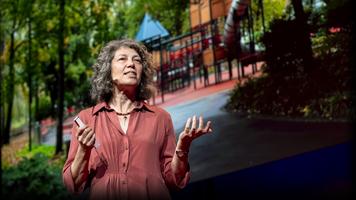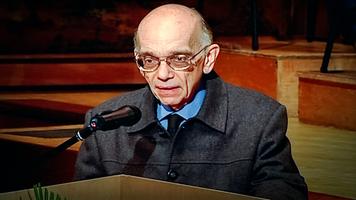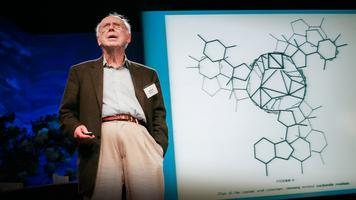Mother London: "AI therapy"

After 100 years of progress, AI bots have finally become too human for their own good. (Credits: Directors: Emerald Fennell & Chris Vernon; Director of Photography: Ben Kracun; Production Design: Jessica Sutton; VFX: Coffee & TV; Executive Producer, TED2018 Film Program: Sinéad McDevitt; Director of Production and Video Operations, TED: ...
Ione Wells: How we talk about sexual assault online
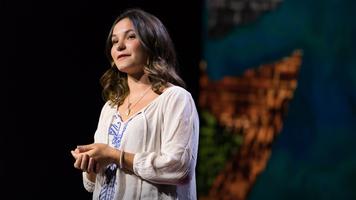
We need a more considered approach to using social media for social justice, says writer and activist Ione Wells. After she was the victim of an assault in London, Wells published a letter to her attacker in a student newspaper that went viral and sparked the #NotGuilty campaign against sexual violence and victim-blaming. In this moving talk, sh...
Hilary Cottam: Social services are broken. How we can fix them
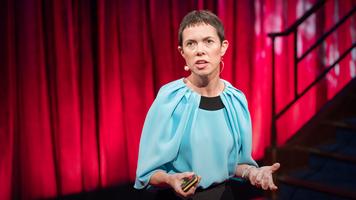
When a family falls into crisis -- and it sometimes happens, thanks to unemployment, drugs, bad relationships and bad luck -- the social services system is supposed to step in and help them get back on track. As Hilary Cottam shows, in the UK a typical family in crisis can be eligible for services from more than 70 different agencies, but it's u...
Deeyah Khan: What we don't know about Europe's Muslim kids
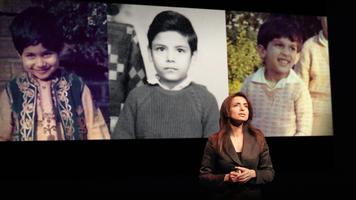
As the child of an Afghan mother and Pakistani father raised in Norway, Deeyah Khan knows what it's like to be a young person stuck between your community and your country. In this powerful, emotional talk, the filmmaker unearths the rejection and isolation felt by many Muslim kids growing up in the West -- and the deadly consequences of not emb...
Brian Cox: Why we need the explorers
Khadija Gbla: My mother’s strange definition of empowerment
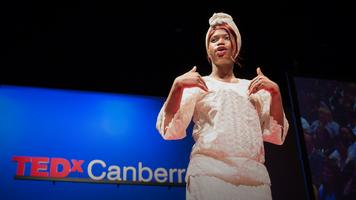
Khadija Gbla grew up caught between two definitions of what it means to be an “empowered woman.” While her Sierra Leonean mother thought that circumsizing her — and thus stifling her sexual urges — was the ultimate form of empowerment, her culture as a teenager in Australia told her that she deserved pleasure and that what happened to her was ca...
Beeban Kidron: The shared wonder of film
Tracy Chevalier: Finding the story inside the painting

When Tracy Chevalier looks at paintings, she imagines the stories behind them: How did the painter meet his model? What would explain that look in her eye? Why is that man ... blushing? She shares three stories inspired by portraits, including the one that led to her best-selling novel "Girl With a Pearl Earring."
Handspring Puppet Co.: The genius puppetry behind War Horse
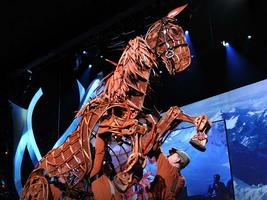
"Puppets always have to try to be alive," says Adrian Kohler of the Handspring Puppet Company, a gloriously ambitious troupe of human and wooden actors. Beginning with the tale of a hyena's subtle paw, puppeteers Kohler and Basil Jones build to the story of their latest astonishment: the wonderfully life-like Joey, the War Horse, who trots (and ...
David Lammy: Climate justice can't happen without racial justice
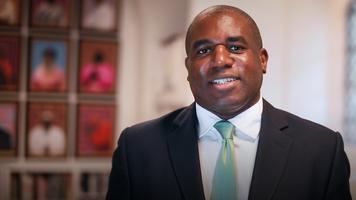
Why has there been so little mention of saving Black lives from the climate emergency? For too long, racial justice efforts have been distinguished from climate justice work, says David Lammy, Member of Parliament for Tottenham, England. In a stirring talk about building a new movement to care for the planet, Lammy calls for inclusion and suppor...
Thomas Heatherwick: Building the Seed Cathedral
Stephanie Busari: How fake news does real harm
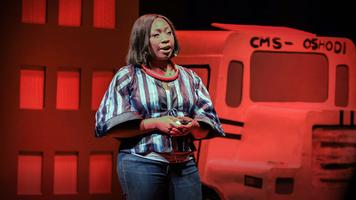
On April 14, 2014, the terrorist organization Boko Haram kidnapped more than 200 schoolgirls from the town of Chibok, Nigeria. Around the world, the crime became epitomized by the slogan #BringBackOurGirls -- but in Nigeria, government officials called the crime a hoax, confusing and delaying efforts to rescue the girls. In this powerful talk, j...
Dan Reisel: The neuroscience of restorative justice
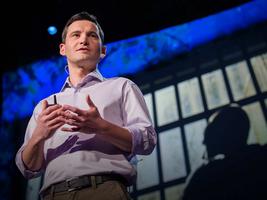
Dan Reisel studies the biology of change, including our ability to rewire our own brains. And he asks a big question: Instead of warehousing these criminals, shouldn't we be using what we know about the brain to help them rehabilitate? Put another way: If the brain can grow new neural pathways after an injury ... could we help the brain re-grow ...
Sonia Livingstone: Parenting in the digital age
John Maeda: How art, technology and design inform creative leaders
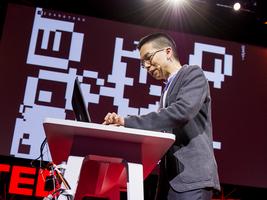
John Maeda, former President of the Rhode Island School of Design, delivers a funny and charming talk that spans a lifetime of work in art, design and technology, concluding with a picture of creative leadership in the future. Watch for demos of Maeda's earliest work -- and even a computer made of people.
Cláudio L. Guerra: Rosalind Franklin: DNA's unsung hero
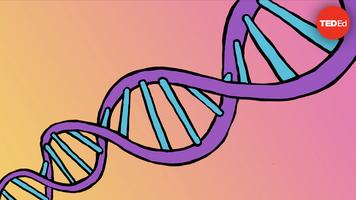
The discovery of the structure of DNA was one of the most important scientific achievements in human history. The now-famous double helix is almost synonymous with Watson and Crick, two of the scientists who won the Nobel prize for figuring it out. But there’s another name you may not know: Rosalind Franklin. Cláudio L. Guerra shares the true st...
Heidi Larson: Why rumors about vaccines spread -- and how to rebuild trust
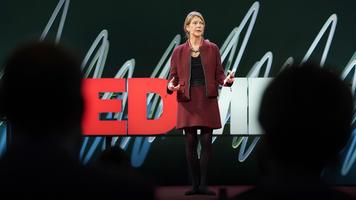
Why do people distrust vaccines? Anthropologist Heidi Larson explores how medical rumors originate, spread and fuel resistance to vaccines worldwide. While vaccines cannot escape the "political and social turbulence" that surrounds them, she says, the first step to stopping the spread of disease is to talk to people, listen and build trust.
Steven Wise: Chimps have feelings and thoughts. They should also have rights
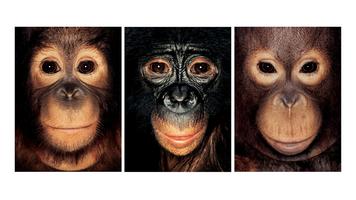
Chimpanzees are people too, you know. Ok, not exactly. But lawyer Steven Wise has spent the last 30 years working to change these animals' status from "things" to "persons." It's not a matter of legal semantics; as he describes in this fascinating talk, recognizing that animals like chimps have extraordinary cognitive capabilities and rethinking...
Leah Chase and Pat Mitchell: An interview with the Queen of Creole Cuisine
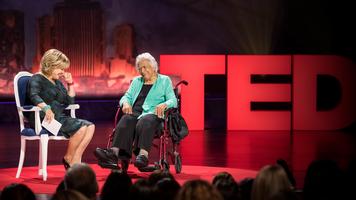
Leah Chase's New Orleans restaurant Dooky Chase changed the course of American history over gumbo and fried chicken. During the civil rights movement, it was a place where white and black people came together, where activists planned protests and where the police entered but did not disturb -- and it continues to operate in the same spirit today...
Steve Silberman: The forgotten history of autism

Decades ago, few pediatricians had heard of autism. In 1975, 1 in 5,000 kids was estimated to have it. Today, 1 in 68 is on the autism spectrum. What caused this steep rise? Steve Silberman points to “a perfect storm of autism awareness” — a pair of psychologists with an accepting view, an unexpected pop culture moment and a new clinical test. B...
Victoria Smith: How to make your writing suspenseful
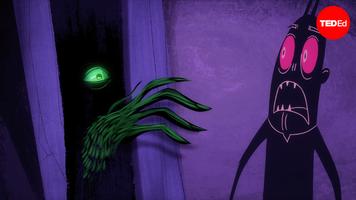
What makes a good horror story? Hideous monsters and fountains of blood might seem like a good place to start, but as horror author H.P. Lovecraft wrote, “The oldest and strongest kind of fear is fear of the unknown.” Writers harness that fear not by revealing horrors, but by leaving the audience hanging in a state of suspense. Victoria Smith gi...
Shrabani Basu: From pacifist to spy: WWII's surprising secret agent
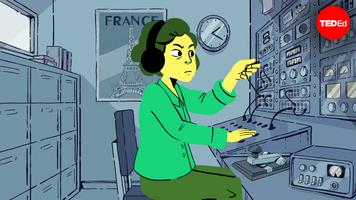
In May 1940, with the German army ready to occupy Paris, Noor Inayat Khan was faced with a difficult choice: stand on the sidelines or join the Allied forces fighting the Nazis. After witnessing the devastation across Europe, she travelled to England to learn the art of espionage. Shrabani Basu details how a pacifist turned spy helped build the ...
Michael Sheen: The magic of a creative career
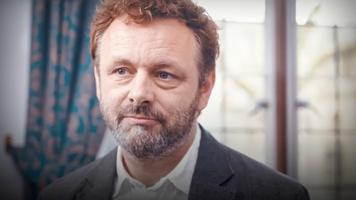
The city of Port Talbot in South Wales is known for a few things: a steel mill, a proudly working class population and a passionate commitment to the arts that produced Hollywood superstars Richard Burton and Anthony Hopkins. In this sweet, personal talk, actor Michael Sheen shares how he was also able to take advantage of all the city had to of...
Taiye Selasi: Don't ask where I'm from, ask where I'm a local

When someone asks you where you're from … do you sometimes not know how to answer? Writer Taiye Selasi speaks on behalf of "multi-local" people, who feel at home in the town where they grew up, the city they live now and maybe another place or two. "How can I come from a country?" she asks. "How can a human being come from a concept?"
Uldus Bakhtiozina: Portraits that transform people into whatever they want to be
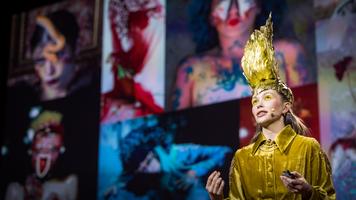
With her gorgeous, haunting photographs, artist Uldus Bakhtiozina documents dreams, working with daily life as she imagines it could be. She creates everything in her work by hand -- from costumes to stages -- without digital manipulation, bringing us images from the land of escapism, where anyone can become something else.
José Antonio Abreu: The El Sistema music revolution
James Watson: How we discovered DNA
Lemon Andersen: Please don't take my Air Jordans
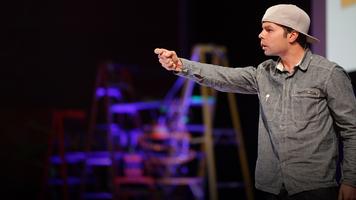
Would you kill for a pair of Air Jordans? Lemon Andersen spins a tale of someone who did, reciting a poem by Reg E. Gaines. These verses taught Lemon that poetry could be about more than self-expression, and could sound like music when given rhythm and infused with the grit of the New York streets around him.
Wawira Njiru: The blueprint for serving a million school lunches — every day
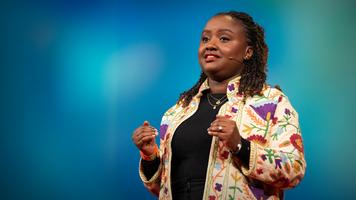
Sometimes feeding just one child can seem challenging. Not for entrepreneur Wawira Njiru, who’s gone from serving lunch to 25 children from a makeshift kitchen to establishing her nonprofit, Food4Education, as a cornerstone of Kenya’s school meals system. Currently serving half a million meals to children every day, she’s now thinking even bigge...
Liene Ozoliņa: Why do we blame individuals for economic crises?
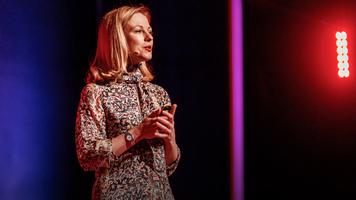
In 2008, the global financial crisis decimated Latvia. As unemployment skyrocketed, the government slashed public funding and raised taxes, while providing relief to the wealthy and large businesses -- all without backlash or protest from struggling citizens. Sociologist Liene Ozoliņa examines how Latvian officials convinced their people to acce...



